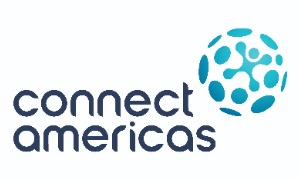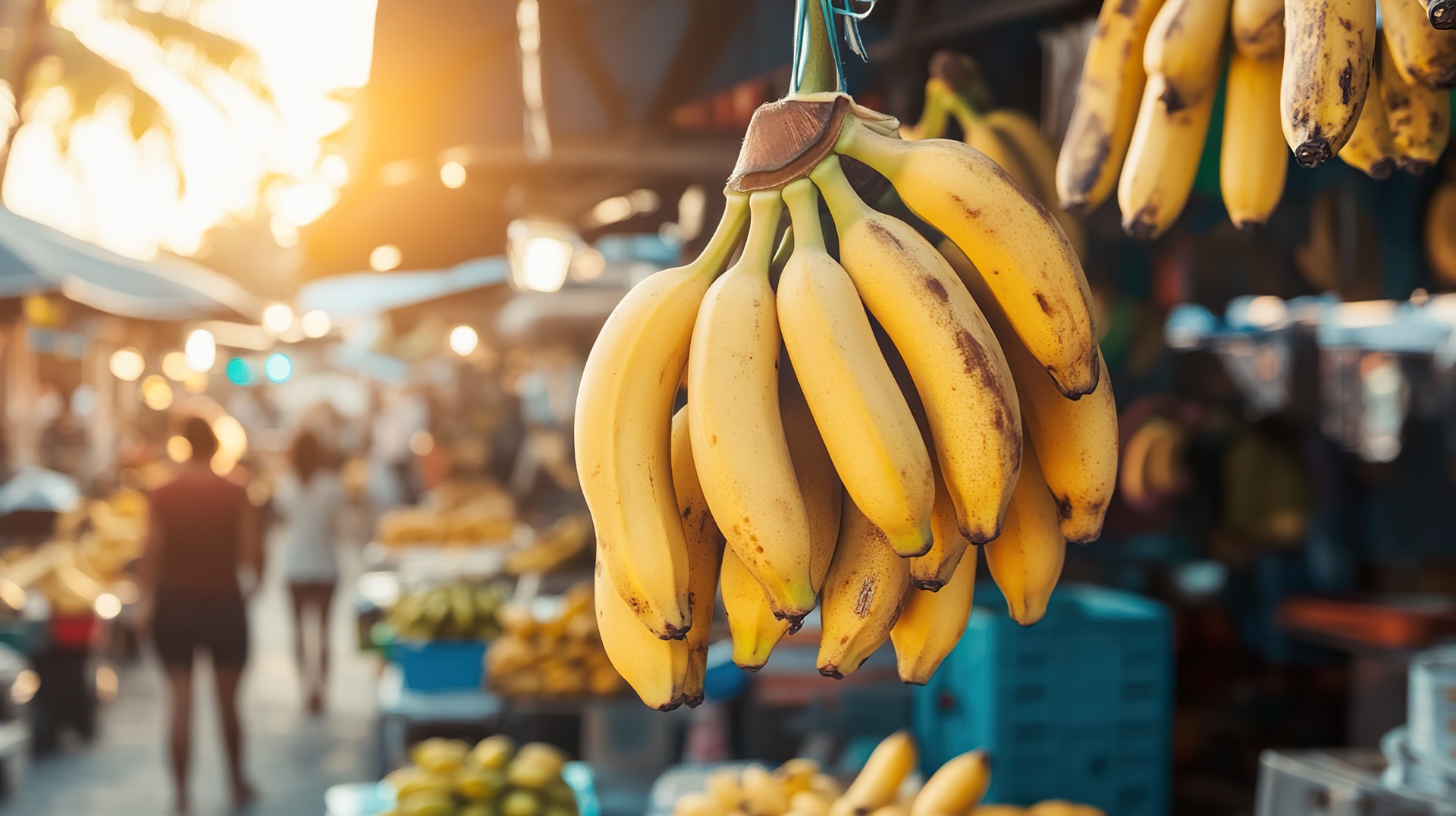At ConnectAmericas, we make it easy to find reputable banana suppliers for your retail or wholesale business. Our supplier search tool offers a convenient, reliable method for finding banana suppliers that meet your requirements.
Using the search tool is easy:
- Go to the ConnectAmericas search tool.
- Choose “Companies” from the navigation menu across the top of the search area.
- Type “banana” in the search window located in the upper left of the navigation panel.
- If seeking a specific country, select them from the “Country” list. If the country you are seeking is not visible, click “Show More” at the end of the list to expand it.
- If you are looking for certain certifications or badges, select them from the “Badges” menu.
- Select any other requirements that interest you, found under “Other Filters.”
- The list will automatically update with your selections.
- Click on the listings that interest you to see more information.
Certifications such as Fair Trade or Organic play a crucial role in establishing trust and credibility for suppliers. Several prominent organizations issue these certifications to ensure compliance with specific, rigorous standards:
- GlobalG.A.P.: Focused on good agricultural practices, GlobalG.A.P. certifies farms for their adherence to standards that promote safe, sustainable, and socially responsible farming.
- Fairtrade International: This organization certifies producers who meet criteria for fair wages, ethical labor practices, and sustainable production, ensuring equitable trade partnerships.
- Rainforest Alliance: Known for its focus on environmental sustainability and social equity, this certification ensures that agricultural products are produced with minimal environmental impact and fair labor conditions.
- ISO 22000: This international standard certifies food safety management systems, ensuring that products meet global food safety requirements across the supply chain.
- International Federation of Organic Agriculture Movements (IFOAM): IFOAM certifies farms and suppliers that adhere to organic farming practices, emphasizing sustainability, biodiversity, and the avoidance of synthetic inputs.
There are many more certifications available beyond the list above, each offering unique benefits tailored to specific needs and priorities. Certifications like these are not obligatory, rather a way to ensure more trust between suppliers and buyers. We encourage you to explore the certification options to find the ones that best align with your goals.
Steps to Verify Banana Suppliers’ Reliability
Vetting is an essential step in the process of partnering with a banana supplier. This ensures that you are both on the same page regarding quality and reliability. ConnectAmericas awards reliability badges to companies that have verified specific information, enhancing their profile's credibility and visibility. The ConnectAmericas search tool highlights the reliability badge in search results and prioritizes the most reliable suppliers by displaying them at the top.
Once you have identified several potential suppliers, research their history. Look for steady growth and consistent operations. Access outside sources to read reviews from actual customers. It is important to read the reviews as opposed to relying solely on rating systems. Customer feedback can be very revealing and point to issues that are dealbreakers for you – or issues that would not affect your relationship with the supplier.
If the supplier lists product certifications, confirm those claims. You can typically go to the certifying agency to get that information.
Finally, communicate directly with the potential supplier. This allows you to get a sense of their customer relations and service. Prepare a list of questions that are relevant to your business. This may include:
- What are your quality standards?
- What certifications do you hold? Can you provide verification?
- What is your quality control process and is it documented? How do you maintain quality control through the supply chain?
- What is your production capacity?
- What is your process for handling non-conforming products?
- What is your method for tracking harvest dates and lot numbers?
- Can you produce upon request detailed documentation on the origin of the product as well as handling history?
- What is your pest management system for your farms?
- What measures do you have in place to prevent contamination of foodborne illness?
- What type of storage facilities do you use?
- What is your method for handling the product to minimize damage while it is being transported?
- What is your system for addressing customer complaints for issues with quality?
- What is your delivery lead time?
- Are you able to meet our order volume?
- What are your pricing structures?
- What are your payment terms?
Document in writing your specific quality requirements as well as any expectations that you have of your supplier. Provide your supplier with this information. If possible, visit the supplier’s facilities and conduct an on-site inspection.
Before entering into an agreement, get all the documentation regarding the supplier’s quality practices, certifications, and other standard operating procedures that are relevant to your business.
Import/Export Considerations for Bananas from Latin America and the Caribbean
There are a number of logistical, regulatory, and legal considerations when importing or exporting bananas.
Logistic
- Transportation: Shipping regulations differ by region. It is vital that you select the right transportation for freshness – land, sea, or air. This is based on the delivery time, distance, and type of produce as well as temperature control during transit and appropriate packaging.
- Storage: Proper storage during transit helps to prevent spoilage and preserves quality. Perishable items require cold chain management.
- Documentation: Complete all required paperwork including packing slips, invoices, bills of lading, and certificates of origin.
- Post Operations: Customs clearance procedures including documentation verification and inspections at the point of entry.
Regulatory
- Phytosanitary Standards: Compliance with disease and pest control procedures for bananas. This includes required treatments and applications as well as inspections before export.
- Food Safety Regulations: Bananas must adhere to food safety standards set by both the exporting country and the importing country, such as Hazard Analysis and Critical Control Points (HACCP)***.
- Customs Regulations: Check the customs regulations for the destination country which include tariffs, import duties, and quotas.
- Labeling Regulations: All produce labels must meet labeling requirements regarding country of origin, nutritional information, and ingredients.
Legal
- Trade Agreements: Review the terms and conditions of Free Trade Agreements or other international trade agreements. There can be variances between countries in areas like import quotas and tariffs.
- Export Restrictions: Identify any export restrictions on bananas that are imposed by the exporting country.
- Import Restrictions: Identify any import restrictions in the destination market for bananas. This can include native pests and other potential contaminants.
- Liability Issues: Manage any potential legal risks that may be associated with the quality of the bananas, accuracy of labeling, and concerns regarding food safety.
Regulations differ by region. Research the legal and regulatory requirements for the region you are working with to avoid fines and delays. Before shipping, check the regulations for your region to ensure that you are compliant. Each region has a governing body that is typically very helpful in accomplishing this. For instance, in the United States, that governing agency is the USDA. They have extensive resources for importing and exporting bananas as well as other produce and animal products.
ConnectAmericass has an Incoterms export price calculator that allows you to calculate your export price before shipping.
What Makes Latin America and the Caribbean Bananas Unique?
Bananas from the LAC region are known for their quality, sustainability, and certifications. South American banana farmers practice sustainability, organic farming, and fair labor. This adds value for buyers because it helps to ensure a consistently high-quality product.
Sustainable farming is an agriculture system that provides for the current human population as well as prepares for future generations by conserving the ability of the earth to sustain them. It focuses on human health as well as environmental health.
Many Latin America and the Caribbean bananas carry popular certifications such as Fair Trade, Organic, and Rainforest Alliance. These ensure quality and are certifications that many consumers look for when shopping for produce.
How ConnectAmericas Helps You Find Trusted Banana Suppliers
Importers can connect with top suppliers on theConnectAmericas supplier search tool.
The platform has key features that enable effective supplier searches and verifications. Users can scale their searches to specific geographic areas, organization types, distinctions like certificates, and more.
There is also a broad knowledge base on the platform with a number of helpful tools and resources such as buyer guides and supplier reviews. Users can access helpful articles and videos as well as find banana market research and financial services as well as key insights on trade in Latin America and the Caribbean.
Expert Tips for Building a Successful Partnership with Banana Suppliers
Once the partnership with a banana supplier has been established, the maintenance begins. From the start, set terms, requirements, and expectations that should be kept throughout the relationship.
Negotiation is a crucial component of any partnership. It is a part of the initial agreement and is utilized throughout the life of the partnership. When engaged in a negotiation:
- Prepare thoroughly
- Know your walkaway point before you begin
- Ask open-ended questions
- Employ active listening
- Set clear quality expectations
- Display confidence
- Present a win-win solution when possible
- Make the first offer if appropriate
- Seek to establish long-term agreements
When setting goals and expectations for your supplier, consider incorporating sustainability goals to align with the values of many Latin America and the Caribbean producers. This will strengthen the relationship and further ensure a quality product.
Regular and consistent communication as well as site visits can help to build trust and provide quality assurance.
Ready to Source Quality Bananas from Latin America and the Caribbean?
Sourcing bananas from Latin America and the Caribbean has a number of impressive benefits. The rich soil and tropical climate provide a perfect environment for growing luscious, delicious, high-quality bananas. Exporting and importing is fairly straightforward as long as you keep an eye on the regulations specific to the countries involved.
You can trust ConnectAmericas when you want to choose a reliable banana supplier or if you are seeking resources on importing, exporting, and more.
Start Connecting with Verified Suppliers Today
Visit ConnectAmericas to connect with suppliers immediately. When you open an account with us, you will have access to an abundance of resources as well as top-rated banana suppliers. Visit our site today, explore the platform, and sign up to ConnectAmericas to enjoy all that we have to offer.



Seguir